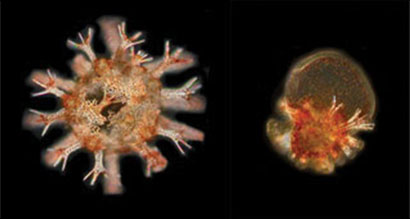World leading Australian marine scientists feature in new online education resources
June 21, 2011 by Ocean Ark Alliance
Categorised in News, Resources, Science
What is ocean acidification?
What causes ocean acidification?
How does ocean acidification impact on coral reefs?
Are today’s conditions very different from the past?
Can we predict how ocean acidification will impact on coral reefs in the future?
World leading Australian marine scientists Professor Ove Hoegh-Guldberg and Professor Peter Harrison answer these and many other questions about corals reefs in two new series of educational video presentations both hosted by Dr ‘Kiki’ Sanford.
Created in collaboration with Education Services Australia, The Learning Federation, Specialty Studios and Plankton Productions, a total of nine insightful video modules with support materials aligned with curriculum standards for education in science are now available.

